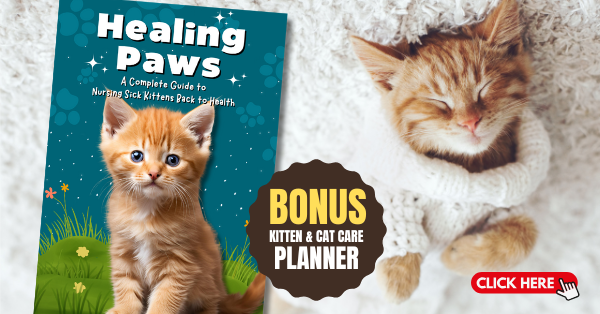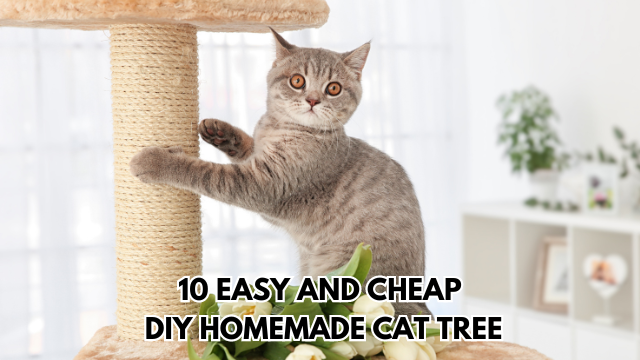Did you know that kittens grow at an astonishing rate during their first few weeks of life? In fact, a healthy kitten can double their birth weight in just the first seven to ten days!
As a new kitten owner, you might be wondering how to tell if your little furball is thriving. While kittens can’t tell you how they’re feeling, their bodies and behaviors can offer plenty of clues.
In this article, we’ll go over the key signs that your kitten is in tip-top shape, from their coat to their energy levels, so you can feel confident they’re on the right track.
1. Bright, Clear Eyes
One of the easiest ways to check if your kitten is healthy is by looking at their eyes.
Healthy kittens have bright, clear eyes that are free from discharge or irritation. Any signs of redness, swelling, or excessive tearing could indicate an infection or an underlying health issue.
A slight watery discharge can be normal in some kittens, but keep an eye on it (pun intended) if it gets worse.
Your kitten’s eyes should also be responsive to light. If you notice your kitten squinting or keeping one eye closed, this could be a sign of discomfort.
According to the ASPCA, keeping your kitten’s eyes clean by gently wiping away any debris with a damp, soft cloth can help prevent irritation and infection.
2. A Shiny, Soft Coat
Another telltale sign of a healthy kitten is their coat.
A healthy kitten will have a soft, shiny coat that’s free of dandruff or excessive shedding. Their fur should feel smooth to the touch, and you shouldn’t notice any bald patches or thinning.
Kittens with dull, dry, or greasy fur may have underlying health problems, such as parasites or poor nutrition.
Regular grooming, even at a young age, helps keep their coat in good condition and can also be a bonding moment for both of you.
PetMD notes that a good diet is key to maintaining your kitten’s coat. High-quality kitten food that’s rich in essential fatty acids like omega-3s can help keep their fur looking its best.

3. Energetic and Playful Behavior
Healthy kittens are curious little adventurers. If your kitten is constantly exploring, pouncing, and getting into mischief, that’s a great sign!
A healthy kitten will be full of energy and love to play with toys, people, and even other animals. Playfulness is a natural part of their development and helps them grow both physically and mentally.
That said, it’s also normal for kittens to sleep a lot—sometimes up to 18 hours a day. As long as they’re active and playful during their waking hours, you can rest assured they’re doing well.
If your kitten seems unusually lethargic or disinterested in play, it might be worth a trip to the vet to rule out any health concerns.
4. Good Appetite and Steady Weight Gain
A healthy kitten has a good appetite and is steadily gaining weight.
Kittens grow rapidly, especially in their first few weeks, so keeping track of their weight is a great way to ensure they’re healthy.
Typically, a kitten should gain about 10-15 grams per day. You can weigh your kitten regularly to monitor their growth. If they’re gaining weight steadily and eating their meals with gusto, they’re likely on the right track.
On the other hand, if your kitten is refusing to eat or losing weight, it could be a sign of illness. Always make sure they’re drinking enough water too, as dehydration can quickly become dangerous for kittens.
The Humane Society recommends feeding kittens a diet specifically formulated for their age, as kitten food contains the nutrients they need for proper growth and development.
5. Clean Ears and Nose
A healthy kitten’s ears should be clean, with no excessive wax, dirt, or discharge.
While a small amount of wax is normal, any foul odor or dark, crusty buildup could indicate an ear infection or ear mites.
Kittens are prone to ear problems, especially if they were born outside or have been around other animals. Regular ear cleaning (with vet-approved products) can help prevent infections and keep their ears healthy.
Similarly, your kitten’s nose should be clean and moist. While a dry nose isn’t always a red flag, it can sometimes signal dehydration.
Keep an eye out for any nasal discharge, sneezing, or congestion, which could point to a respiratory infection.
PetMD suggests gently inspecting your kitten’s ears and nose during routine care, and always consulting with your vet if something looks off.
6. Healthy Gums and Teeth
Oral health is crucial for your kitten’s overall well-being. Healthy kittens have pink gums and white teeth. Bad breath, excessive drooling, or bleeding gums can all be signs of dental issues or infections.
It’s never too early to start taking care of your kitten’s teeth.
While kittens lose their baby teeth by around 6 months, getting them used to having their mouths handled will make brushing easier down the line. Regular dental care is important to prevent more serious issues like gum disease.
The American Veterinary Medical Association emphasizes the importance of dental check-ups during your kitten’s routine vet visits to ensure they’re on track with their oral health.
7. Regular Bowel Movements
A healthy kitten will have regular, well-formed bowel movements. Their stool should be firm and brown.
Diarrhea, constipation, or changes in stool color can signal health issues such as parasites, infections, or dietary problems.
If your kitten has diarrhea for more than a day or two, it’s a good idea to consult with your vet. Young kittens can quickly become dehydrated, which can lead to more serious complications.
CatCare.com suggests keeping track of your kitten’s litter box habits, as changes in their stool can offer early signs of digestive problems or other health concerns.

8. Clean, Pink Paws and Claws
Your kitten’s paws and claws are also good indicators of their health.
Healthy paws will be pink (or black, depending on their fur color) and clean. Their claws should be sharp and retractable, without any swelling or redness around the nail beds.
Kittens love to climb and explore, so check their paws regularly for any cuts, splinters, or dirt that might get trapped between their toes.
Keep their claws trimmed to prevent overgrowth or injury during their playful antics.
Bonus Tip: Regular Vet Check-Ups
One of the best ways to ensure your kitten stays healthy is by scheduling regular vet check-ups.
Even if they seem perfectly fine, wellness visits can catch potential health issues early and keep them up-to-date on their vaccinations and deworming treatments.
Kittens should have their first vet visit around 6 to 8 weeks old, and then regularly until they’re about 16 weeks.
Read: How to Stop My Kitten From Pouncing on Me?
Keeping an eye on these signs will help you ensure that your kitten is growing and thriving. Bright eyes, a shiny coat, playful energy, and regular weight gain are all indicators that your kitten is in good health.
But as always, when in doubt, don’t hesitate to consult your vet—they’re your best resource for keeping your furry friend healthy and happy.
Watch Videos about Cat & Kitten Care on Youtube @naowthecat